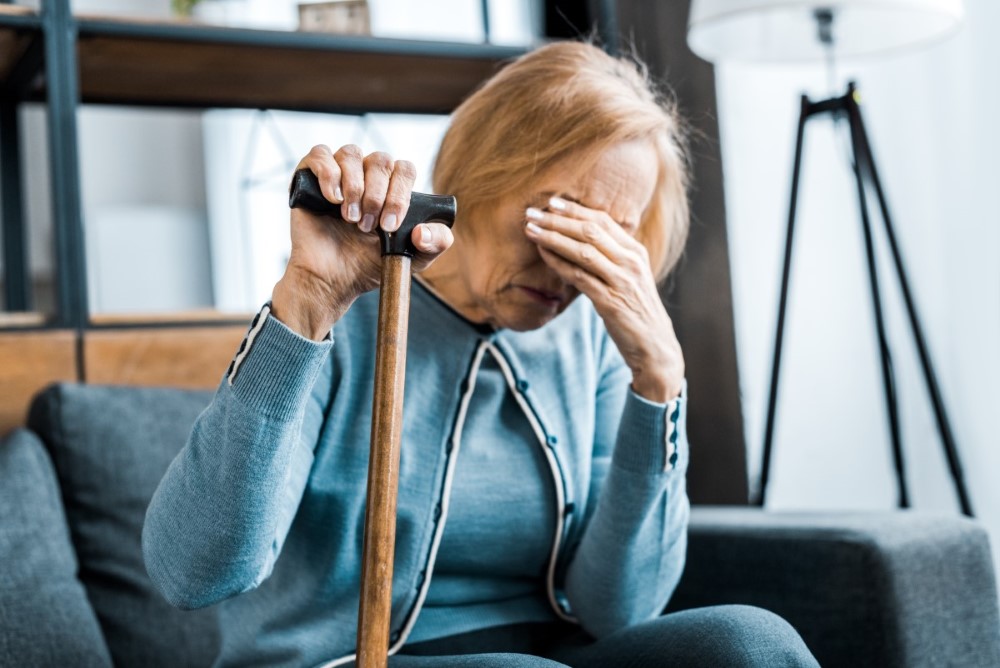Addiction in older adults is a growing but often overlooked concern. As you or your loved ones age, the risk of developing addictions, particularly to prescription medications, alcohol, or even gambling, increases. This demographic faces unique challenges due to factors like retirement, social isolation, and health issues, which can all contribute to the onset of addictive behaviors.
The elderly are uniquely vulnerable to addiction due to several factors. Firstly, they are more likely to be prescribed medication with addictive potential, such as opioids for pain or benzodiazepines for anxiety. Secondly, aging bodies process substances differently, leading to heightened sensitivity and increased risk of dependency. Additionally, cognitive changes can affect decision-making, making older adults more susceptible to addictive behaviors.
The Role of Loneliness and Social Isolation
Loneliness and social isolation are significant contributors to addiction in the elderly. Retirement, loss of a spouse, or distance from family can lead to feelings of loneliness, and substances or addictive behaviors may be used as a coping mechanism. Recognizing these emotional triggers is vital in addressing addiction in this demographic. Diagnosing addiction in the elderly can be challenging. Symptoms are often mistaken for signs of aging or other health conditions. This underdiagnosis means that many older adults don’t receive the help they need. Tailored approaches to treatment that consider the physical and mental health challenges of the elderly are crucial for effective recovery.
Support systems for older adults struggling with addiction need to be age-appropriate and accessible. Family involvement, community resources, and healthcare providers play key roles. Support groups specifically for the elderly can provide peer understanding and encouragement, which are essential for recovery.
Preventing addiction in the elderly involves educating them, their families, and healthcare providers about the risks. Regular assessments by healthcare professionals for signs of addiction, especially when prescribing medications, are essential. Educating the elderly about the dangers of substance misuse and providing alternatives for pain management and mental health support are also critical.
In exploring the intricate relationship between addiction and the elderly, a critical aspect to consider is the prevalence of medication-related problems in this demographic. Older adults are particularly susceptible to adverse drug effects for several reasons. They often require multiple medications simultaneously, a practice known as polypharmacy, which significantly raises the risk of negative interactions and side effects. Additionally, age-related changes in how their bodies process and respond to drugs (pharmacodynamics and pharmacokinetics) further increase the risk of adverse effects. These factors contribute to a heightened vulnerability among the elderly, not only to the intended effects of medications but also to their potentially harmful side effects, such as oversedation, confusion, and even more severe issues like falls and bleeding.
Globally, the problem of drug abuse presents a growing concern, with alarming statistics indicating the severity of this issue. For instance, in 2015, approximately 450,000 deaths were attributed to drug use, with a significant portion of these fatalities directly related to drug use disorders, often involving opioids. This crisis poses a threat not only to individual health and well-being but also to broader societal aspects such as security and sustainable development.
Specifically, drug addiction represents a severe dependence syndrome, where the individual experiences an overpowering desire to consume drugs, often prioritizing this need over essential daily activities and relationships. This condition reflects a profound loss of control over drug use, signifying a deep-rooted psychological and physiological compulsion.
Within the context of the elderly, these issues take on unique dimensions. The elderly are not only more prone to adverse drug effects due to physiological changes and polypharmacy but also face specific challenges related to addiction. Their vulnerability is heightened by factors such as social isolation, chronic pain, and the complexities of managing multiple health conditions. As such, addressing drug therapy problems in the elderly requires a nuanced understanding of these unique factors and the implementation of tailored approaches to manage and mitigate these risks effectively.
In regions with aging populations, including areas like South Africa where the demographic shift towards an older population is becoming more pronounced, this issue necessitates an urgent and focused response. It calls for a comprehensive approach that encompasses education, appropriate medication management, and supportive interventions tailored to the needs of the elderly.
Future Implications of Elderly Addiction
Rising Trends in Elderly Addiction
As we look towards the future, the issue of addiction in the elderly is set to become more prevalent. With aging populations worldwide, including regions like South Africa, the number of older adults facing addiction, particularly to prescription drugs and alcohol, is expected to rise. This trend underscores the importance of understanding and addressing addiction in this demographic, not just for the individuals affected, but also for the healthcare systems and societies at large.
Increased Health Risks and Systemic Strain
The escalation of addiction issues among the elderly brings with it increased health risks and potential strain on healthcare systems. Elderly individuals grappling with addiction face a higher likelihood of adverse drug reactions and related health complications. This situation demands enhanced healthcare resources and specialized care approaches, which could significantly impact healthcare budgets and caregiving resources.
The Need for Tailored Treatment Approaches
In response to these challenges, the development and implementation of tailored treatment approaches for elderly individuals will be essential. As you or your loved ones age, it’s crucial to have access to addiction treatment that considers age-specific factors such as polypharmacy, comorbidities, and age-related physiological changes. Personalized treatment plans will play a key role in effectively managing and treating addiction in older populations.
Strengthening Support and Prevention Strategies
Preventing addiction in the elderly and providing robust support systems will become increasingly important. This includes educating healthcare providers, caregivers, and the elderly themselves about the risks of addiction, implementing regular screening for addiction in older adults, and fostering strong support networks. By taking these proactive steps, you can help safeguard yourself or your loved ones against the risks of addiction in later life.
A Call for Policy and Community Engagement
Looking forward, effective policy measures and community engagement will be critical in addressing the growing concern of elderly addiction. Policies aimed at regulating prescription practices, increasing funding for elderly-specific addiction programs, and enhancing community awareness can significantly contribute to mitigating this issue. Your involvement and advocacy can drive these changes, creating a safer and more supportive environment for the elderly.
The Future of Awareness and Elderly Action
Awareness and action are key. Understanding the potential future impact of addiction in the elderly and taking steps to address it – whether through personal, community, or policy efforts – can make a profound difference. By staying informed and involved, you can contribute to shaping a future where the elderly receive the care and support they need to combat addiction.
In revisiting the challenges highlighted at the outset of our discussion on Addiction and the Elderly: A Growing Concern, it’s essential to reaffirm the solutions and strategies that address these critical issues. We began by acknowledging the often-overlooked epidemic of addiction among the elderly, driven by factors such as increased susceptibility to drug effects, polypharmacy, and age-related physiological changes. These challenges, compounded by the risks of social isolation and the complex interplay of physical and mental health issues, paint a concerning picture for the future of elderly care.
However, through our exploration, we’ve also identified robust solutions and proactive strategies. The need for tailored treatment approaches for older adults is paramount. Recognizing that the one-size-fits-all model of addiction treatment is not suitable for the elderly, we emphasized the importance of personalized care plans that take into account the unique challenges faced by this demographic. This approach not only addresses the immediate issue of addiction but also mitigates the risk of adverse drug reactions and other health complications.
Prevention, too, plays a critical role. Educating healthcare providers, caregivers, and the elderly about the risks of addiction, coupled with regular screenings, can significantly reduce the incidence of substance abuse in older populations. Additionally, strengthening support systems and community networks ensures that elderly individuals struggling with addiction do not face their battles alone.
Policy interventions and community engagement are also vital in creating a supportive environment for the elderly. Advocating for policies that regulate prescription practices and increase funding for elderly-specific addiction programs can lead to systemic changes that protect the most vulnerable.
By revisiting the initial challenges and affirming the solutions provided, we come full circle in our understanding of Addiction and the Elderly: A Growing Concern. The path forward requires a combination of personalized care, preventive measures, and community and policy engagement. By embracing these strategies, we can better support our elderly population, ensuring they have the resources and care needed to face the challenges of addiction with dignity and hope.




